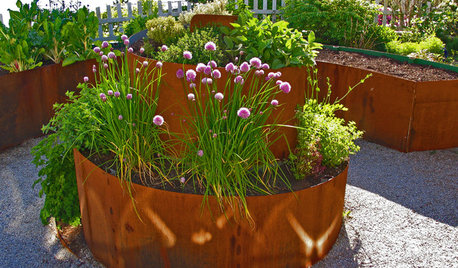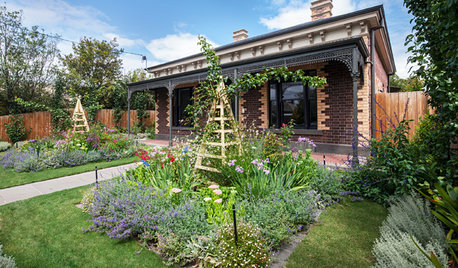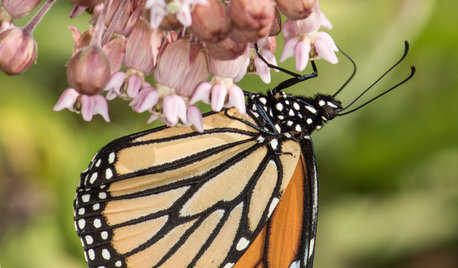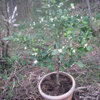Please help me choose a fertilizer for container Meyer Lemon!
beanqueen11
9 years ago
Related Stories

GARDENING GUIDESHow to Keep Your Citrus Trees Well Fed and Healthy
Ripe for some citrus fertilizer know-how? This mini guide will help your lemon, orange and grapefruit trees flourish
Full Story
URBAN GARDENSContainers Make Growing Edibles a Cinch
If life hands you a lack of land, grow lemons — with a few basics, you can proudly reap the fruits, veggies and herbs of your labor
Full Story
HOUSEPLANTSMother-in-Law's Tongue: Surprisingly Easy to Please
This low-maintenance, high-impact houseplant fits in with any design and can clear the air, too
Full Story
EDIBLE GARDENSAn Edible Cottage Garden With a Pleasing Symmetry
The owners of this cottage garden in Australia grow vegetables, herbs and fruit to delight their family and friends
Full Story
PETS6 Ways to Help Your Dog and Landscape Play Nicely Together
Keep your prized plantings intact and your dog happy too, with this wisdom from an expert gardener and dog guardian
Full Story
MOST POPULAR7 Ways to Design Your Kitchen to Help You Lose Weight
In his new book, Slim by Design, eating-behavior expert Brian Wansink shows us how to get our kitchens working better
Full Story
ORGANIZINGGet the Organizing Help You Need (Finally!)
Imagine having your closet whipped into shape by someone else. That’s the power of working with a pro
Full Story
GARDENING GUIDESHow to Switch to an Organic Landscape Plan
Ditch the chemicals for a naturally beautiful lawn and garden, using living fertilizers and other nontoxic treatments
Full Story
SELLING YOUR HOUSE10 Tricks to Help Your Bathroom Sell Your House
As with the kitchen, the bathroom is always a high priority for home buyers. Here’s how to showcase your bathroom so it looks its best
Full Story
FLOWERS AND PLANTSHelp Monarchs and Other Butterflies by Planting Common Milkweed
Summer-blooming Asclepias syriaca is an important larval host plant for the monarch butterfly and attracts a number of pollinating insects
Full Story






poncirusguy6b452xx
bossyvossy
Related Professionals
Wrentham Landscape Architects & Landscape Designers · Foothill Ranch Landscape Architects & Landscape Designers · Owings Mills Landscape Architects & Landscape Designers · South Orange Landscape Architects & Landscape Designers · Garden City Landscape Architects & Landscape Designers · Cornelius Landscape Contractors · Edwardsville Landscape Contractors · Oxnard Landscape Contractors · Secaucus Landscape Contractors · Soddy Daisy Landscape Contractors · Thornton Landscape Contractors · Wallingford Landscape Contractors · Whittier Landscape Contractors · New Carrollton Landscape Contractors · Sun Valley Landscape Contractorsbeanqueen11Original Author
johnmerr
poncirusguy6b452xx
serge94501
vanman23
Dtunesgw
hoosierquilt USDA 10A Sunset 23 Vista CA
beanqueen11Original Author
poncirusguy6b452xx
johnmerr
Monyet
tapla (mid-Michigan, USDA z5b-6a)
tapla (mid-Michigan, USDA z5b-6a)